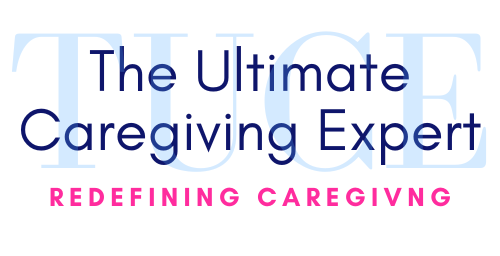Caring for a Loved One With Chronic Pain Management in Caregiving

Family caregivers face complex challenges when supporting loved ones with chronic pain. Chronic pain arises from conditions such as arthritis, fibromyalgia, back pain, migraines, neuropathy, cancer, or injury-related pain. It affects both physical and emotional well-being, reducing mobility, daily functioning, and overall quality of life.
This guide provides actionable strategies for caregivers to manage chronic pain effectively. By applying evidence-based chronic pain management techniques, including medication management, physical therapy support, emotional care, lifestyle adjustments, and collaboration with healthcare professionals, caregivers can improve patient outcomes while protecting their own health and resilience.
Who Are The Loved Ones Experiencing Chronic Pain?
The loved ones experiencing chronic pain encompass a diverse group of individuals who may be dealing with persistent discomfort due to a wide range of health conditions. These conditions can include but are not limited to:
- Arthritis
- Fibromyalgia
- Back pain
- Migraines
- Neuropathy
- Cancer
- Injuries resulting from accidents
What is Chronic Pain Management in Caregiving?
Chronic pain management in caregiving refers to the strategies and techniques used by family caregivers to help their loved ones cope with persistent pain effectively. It involves a multifaceted approach aimed at reducing pain and improving the overall quality of life for the individual experiencing chronic pain. These strategies may include:
- Medication Management: Family caregivers may assist their loved ones in managing their medications, ensuring they are taken as prescribed and monitoring for any side effects.
- Physical Therapy: Family caregivers may help their loved ones engage in physical therapy exercises aimed at improving flexibility, strength, and mobility, which can help reduce pain and improve function.
- Psychological Support: Chronic pain can take a toll on a person’s mental health, leading to feelings of anxiety, depression, and frustration. Family caregivers provide emotional support, offer reassurance, and encourage their loved ones to seek professional help if needed.
- Lifestyle Changes: Family caregivers may assist their loved ones in making lifestyle changes that can help manage chronic pain, such as adopting a healthy diet, getting regular exercise, practicing relaxation techniques, and ensuring proper sleep hygiene.
By implementing these strategies and working closely with their loved one’s healthcare team, family caregivers can play a crucial role in helping them manage their chronic pain and improve their overall quality of life.
Where Does Chronic Pain Management in Caregiving Take Place?
Chronic pain management in caregiving can take place in various settings, depending on the needs and preferences of the individual experiencing chronic pain.
- Home: Many family caregivers provide care and support for their loved ones in the comfort of their own homes. In-home chronic pain management may involve medication management, assisting with daily activities, providing emotional support, and implementing pain management strategies recommended by healthcare professionals.
- Hospital: In some cases, chronic pain management may require hospitalization, especially if the pain is severe or if the individual requires specialized medical care or interventions. Family caregivers may accompany their loved ones to the hospital, advocate for their needs, and provide support during their stay.
- Long-term Care Facility: For individuals who require more extensive care, chronic pain management may take place in a long-term care facility such as a nursing home or assisted living facility. Family caregivers may work closely with the facility staff to ensure their loved one’s pain management needs are met and provide additional support as needed.
Regardless of the setting, family caregivers play a crucial role in ensuring their loved ones receive the care and support they need to manage their chronic pain effectively. They work closely with healthcare professionals to implement pain management strategies and provide emotional support, ultimately improving their loved one’s quality of life.
When Does Chronic Pain Management Become Necessary?
Chronic pain management becomes necessary when a loved one is experiencing persistent pain that significantly affects their daily life and overall well-being. This persistent pain may be due to various conditions, such as arthritis, fibromyalgia, back pain, neuropathy, cancer, or other chronic illnesses. Family caregivers often need to intervene when their loved one’s pain is not adequately controlled or managed through conventional means.
Signs that chronic pain management may be necessary include ongoing pain that lasts for weeks, months, or even years, despite attempts to alleviate it with over-the-counter medications or other remedies, limited functionality, emotional distress, and a decreased quality of life. Family caregivers play a vital role in recognizing these signs, advocating for their loved ones to receive appropriate pain management interventions, and working closely with healthcare professionals to improve their loved one’s quality of life and overall well-being.
Why is Chronic Pain Management Important for Family Caregivers?
Chronic pain management is crucial for family caregivers because uncontrolled pain can have a significant impact on both the individual experiencing the pain and their caregivers. When chronic pain is not effectively managed, it can lead to decreased mobility, reduced quality of life, and increased emotional distress for the person experiencing the pain. This, in turn, can place additional strain on the caregiver, affecting their ability to provide care effectively.
By effectively managing chronic pain, family caregivers can help improve their loved one’s overall well-being, enhance their quality of life, and reduce the emotional and physical burden on both the caregiver and the care recipient. Additionally, when the care recipient’s pain is managed effectively, it can improve their mood, increase their ability to engage in daily activities, and strengthen their relationship with their caregiver.

3 thoughts on “Caring for a Loved One With Chronic Pain Management in Caregiving”